Grimdark fantasy is great, but sometimes (especially when the summer sun is just around the corner) we want something that’s more… optimistic. Just a little, at least! We’ve gathered 13 of our favorite brighter fantasies below, but be sure to add your own picks in the comments!
The Goblin Emperor—Katherine Addison
Katherine Addison’s delightful novel is about many things, but at its (lovable) heart it’s a story about realizing that sometimes your quirks are your greatest strengths. Maia, half-elven, half-goblin, becomes Emperor when his father and three elder brothers are assassinated. He has to learn how to rule a distrustful kingdom while he investigates the murder, navigates the byzantine politics of his (primarily Elven) court, and, hardest of all, stays true to himself. The story doesn’t shy away from the horrors of executions or the ugliness of prejudice, but it also focuses on the power of compassion to bridge social differences and effect change.
Buy the Book
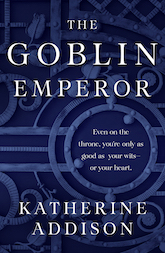

The Goblin Emperor
The Face in the Frost—John Bellairs
A wizard named Prospero (not that one) teams up with his old friend, the adventurer Roger Bacon (OK, maybe that one), to confront an evil power attacking their kingdom. They know going into the fight that they’re outmatched, but what else can they do? Bellairs’ story, like all of his work, juggles truly effective horror with quirky humor. The book gives weight to both elements, owning up to the terror that would come with a fight against evil, but also never wallowing in that terror to the point of overwhelming the humanity of the book.
Buy the Book
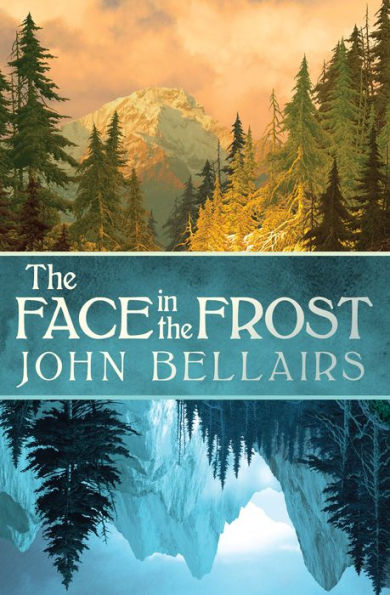

The Face in the Frost
The Copper Promise—Jen Williams
Williams’ novel combines some of the tropes of grimdark, e.g. mercenaries, torture, and tragic backstories, with some of the higher ideals of sword and sorcery. Best of all, it treats what could have been a slog through brutal battles as a lighthearted adventure. This bright tone, combined with a biting sense of humor, make the book fun as well as epic. The fallen knight is more complicated than we think, the swordswoman-for-hire is as handy with snark as she is with a sword, and… what’s this? The main character’s arc is one of rediscovering his humanity after a horrible trauma, rather than a slow degradation into despair? Is it possible?
Buy the Book
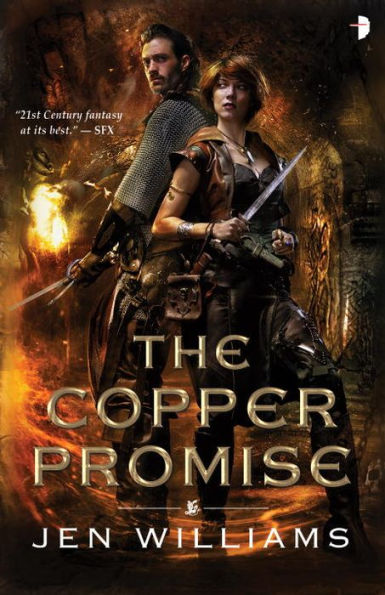

The Copper Promise
Riftwar Series—Raymond E. Feist
Several denizens of Twitter suggested Feist’s work as an antidote to grit! The central conceit of the Riftwar books are the rifts themselves—they can join worlds, but those who travel through them can seek communication and exploration, or war and conquest, and the series explores many permutations of these choices. Sure, it has has war right there in the name, but it also has characters who are willing to sacrifice themselves for the greater good, who take chances on trusting each other (and have that trust rewarded), rulers who choose mercy over murder, and candidates for the throne who abdicate so that better people can lead. We’re a long way from Westeros when we’re reading Feist.
Buy the Book
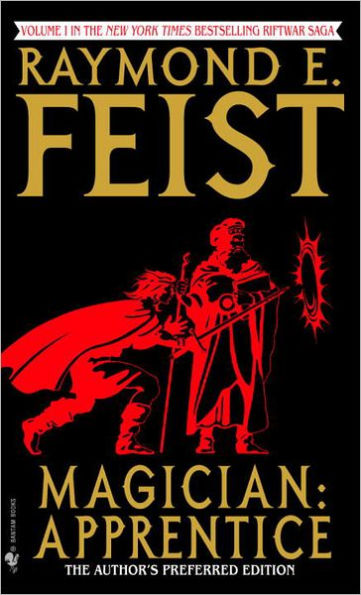

Magician: Apprentice
Shannara Series—Terry Brooks
These are more high fantasy style, involving hero quests in addition to mundane acts of heroism. As he says in his 2003 book Sometimes the Magic Works, his “protagonists are cut from the same bolt of cloth as Bilbo and Frodo Baggins. It was Tolkien’s genius to reinvent the traditional epic fantasy by making the central character neither God nor hero, but a simple man in search of a way to do the right thing….I was impressed enough by how it had changed the face of epic fantasy that I never gave a second thought to not using it as the cornerstone of my own writing.”
Buy the Book
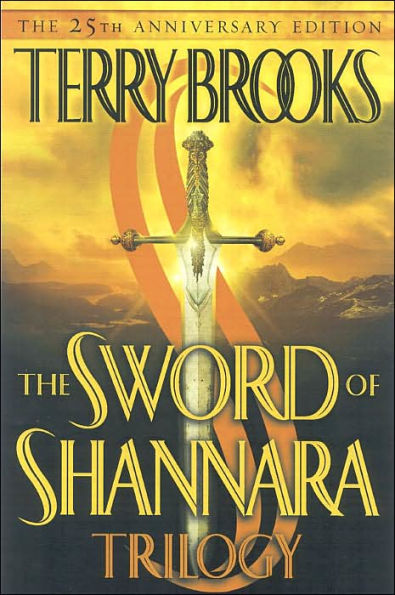

The Sword of Shannara
Chrestomanci Series—Diana Wynne Jones
All of Diana Wynne Jones’ books could be on this list, but we’ll stick with the Chrestomanci Series, and particularly, The Lives of Christopher Chant. People die, parents split up, and villainous uncles trick nephews into nefarious schemes, but Wynne Jones still gives us characters to root for and dashes of hope. Christopher Chant himself is good-hearted (occasionally bitchy, but good-hearted), going out of his way to help a young goddess, and forging a friendship with the awesomely-named Throgmorten the Cat.
Buy the Book
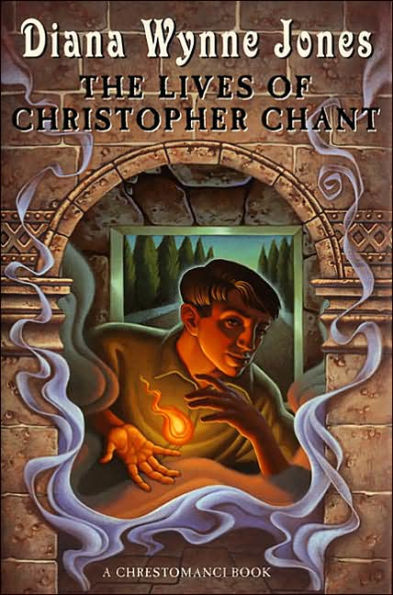

The Lives of Christopher Chant
The Sun, the Moon, and the Stars—Steven Brust
Brust’s novel is about a painter creating oil paintings and putting an art show together. It’s also a retelling of the Hungarian tale of Taltos, who uses expert-level trickster skills to con the sun, moon, and stars away from the monsters who own them. The stories parallel each other in fascinating ways, but much of the weight is given to the modern story of a person who is part of both an artistic community and a supportive relationship. This allows the book to work as an inspiring tale of the value of art, rather than just another quirky fairytale mashup.
Buy the Book
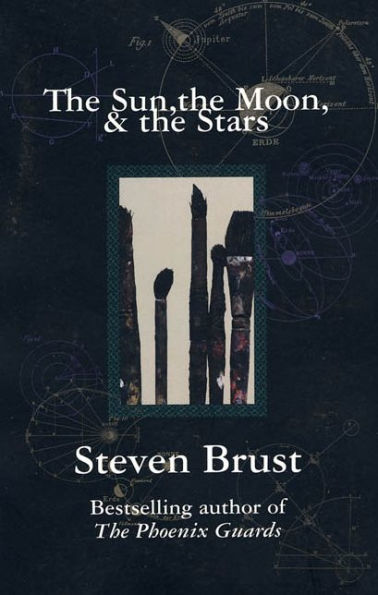

The Sun, the Moon, and the Stars
Range of Ghosts—Elizabeth Bear
Range of Ghosts, the first book in Bear’s Eternal Sky trilogy, gives us an epic fantasy world influenced by Central Asian culture. Temur, a grandson of the Great Khagan, and Samarkar, the former princess of the Rasa dynasty who abdicated her royalty to become a wizard, must stand together against the hidden cult that has caused civil war throughout the empires of the Celadon Highway. While this is a complex book, with layers of religious tradition and political intrigue, Bear also focuses on the characters at the story’s center, and, as Liz Bourke said in her review, “the significance of a single life, united with other single lives,” and “moments of kindness and stillness amidst the horror of war,” creating an epic with a beating, human heart.
Buy the Book
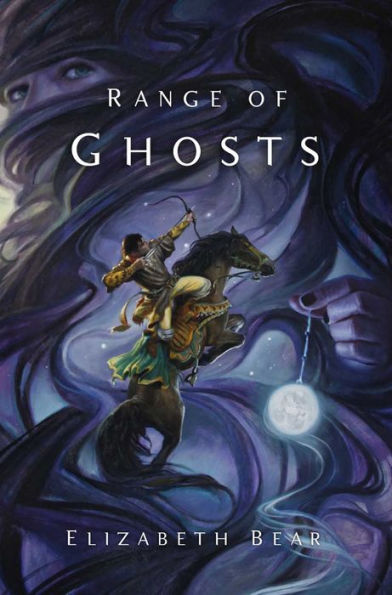

Range of Ghosts
The Dragon’s Path—Daniel Abraham
The Dragon’s Path is epic fantasy that picks up after the dragons have gone, leaving behind thirteen races who were bred to serve them. Now those races squabble and war with each other as they try to map an economy and political destiny. While there is a lot of page-time spent on pseudo-Renaissance banking systems, Abraham also takes the time to give us several point-of-view characters that enrich the story with humanity. He chooses to focus on a higher-class couple who would probably be the villains in most books, but here are made worthy of empathy.
Buy the Book
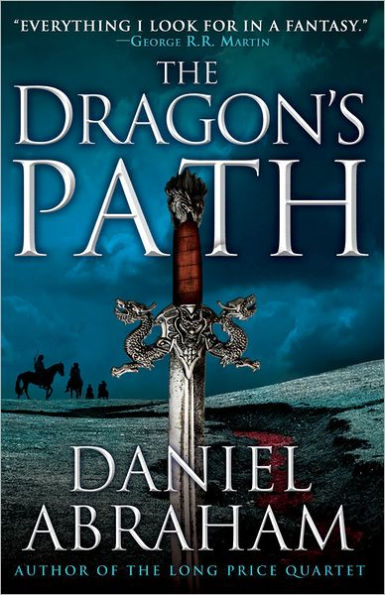

The Dragon’s Path
Little, Big—John Crowley
Little, Big unfolds over nearly a century, as the Drinkwater clan builds an intricate relationship with the world of faerie. We meet the human family, hear rumors of magical beings, visit a dystopian City, and spend some time with a Grandfather Trout who might be a cursed prince. Crowley isn’t afraid to slow down and ponder heady subjects like free will and fate, or to tell his story through intricate detail and gorgeous language, which led to a novel that Ursula le Guin said, “…all by itself calls for a redefinition of fantasy,” and Thomas Disch called “the best fantasy novel ever. Period.”
Buy the Book
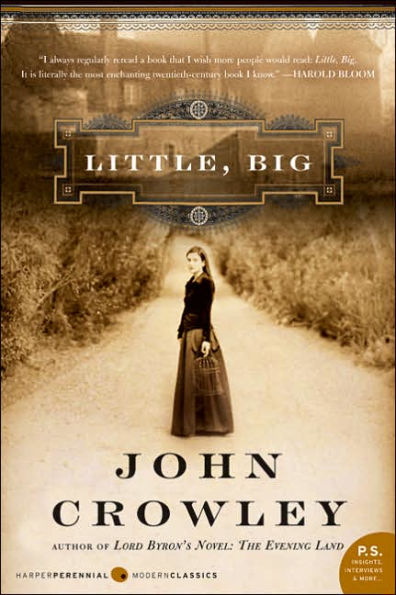

Little, Big
Lyonesse Trilogy—Jack Vance
This trilogy melds Arthurian stories, chivalric tropes, and Celtic mythology into a story of a despotic king, his daughter, and her lover. Since Vance took elements from several different medieval periods and used those elements to bring life to his own magical lands, he can play around with references to stories and echoes of themes, such as the fall of Atlantis, without being tied to an expected narrative. While the story itself is not exactly lighthearted, it does feature plenty of humor, fun, and romance. He also uses the Atlantean references to tinge the whole story with melancholy—how long can Lyonesse last? Does the possibility of the Kingdom’s end overshadow the joy that can be had in the moment?
Buy the Book
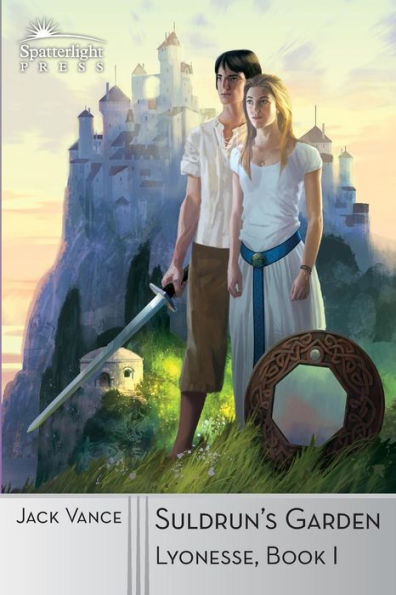

Suldrun's Garden
The Innkeeper’s Song—Peter S. Beagle
We talk about The Last Unicorn a lot on this site, because The Last Unicorn is fucking awesome. But! Peter S. Beagle did so much more! So when a Twitterer mentioned Beagle’s work, I decided to highlight The Innkeeper’s Song. Beagle jumps across multiple points of view to weave several different quests together. Tikat pursues his childhood love, whom he saw resurrected by magicians. Lal and Nyateneri, the magicians, are racing to save their old mentor from his powerful but evil student. Lukassa, the resurrected girl, has her own path to pursue. And the Innkeeper himself must take them all in, even though he knows they bring trouble with them. Through nested quests and elegant language, Beagle tries to get to the heart of death, love, and duty.
Buy the Book
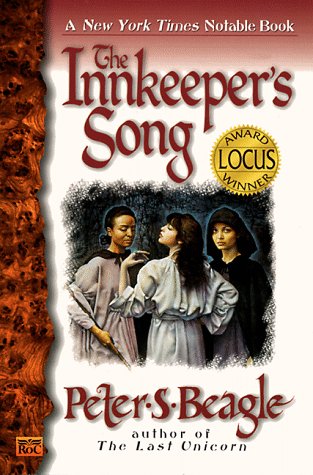

The Innkeeper's Song
The Curse of Chalion Series—Lois McMaster Bujold
This series is a melding of fantasy and theology informed by elements of medieval Spanish history and mysticism, especially the reign of Ferdinand and Isabella in the late 15th Century. The Curse of Chalion follows Lupe dy Cazaril, who returns home after war and enslavement to try to live a quiet life, but instead finds himself working to lift the curse that lays on the royal family that has acted as his patron. A little bit epic, a little bit slice of (imaginary, alternate universe) life, the series takes questions of morality and duty seriously, without succumbing to endless bouts of violence or despair.
Buy the Book
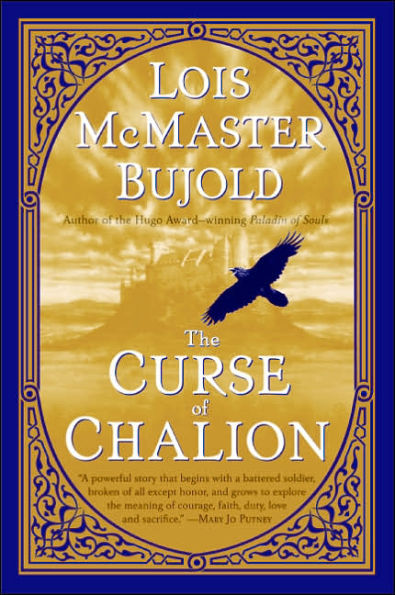

The Curse of Chalion
So, this is our list, but we’re sure there are more upbeat fantasies out there—give us your suggestions! Do you want some light to cut through the grimdarkness, or are do you prefer your fantasy as gritty as possible?
Originally published in April 2014.










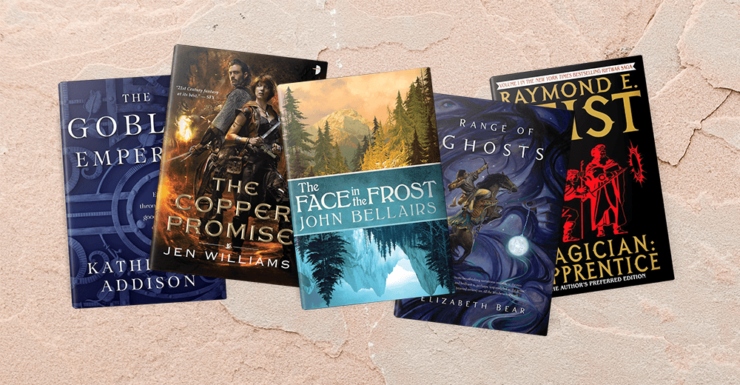
My go to is always David Eddings Belgarion series, the humor and adventure always gives me a smile
The Dragon’s Path and the rest of the Dagger and the Coin series are about as optimistic and bright as Game of Thrones. Genocide, death cults, mind altering parasites, PTSD, and other cheerful things.
I was just looking for some recommendations and this post is a perfect place. My mom’s birthday was this weekend and I always like to do something to remember her. She loved gardens and all sorts of growing things and I thought it would be nice to read a story that was centered around that sort of thing. So does anyone have any recommendations for fantasy novels featuring the magic of the Earth and gardens and forests? I’m assuming a story like that would be pretty optimistic.
@2 – yeah, the burning of an entire City (for example) is a bummer. But I did enjoy the series.
@3, Robin McKinley’s Beauty, Rose Daughter, and Chalice; and Ursula Vernon’s Bryony and Roses Might be what you are looking for. 3 out of the 4 are Beauty and the Beast, but there’s nothing wrong with that!
Nice to see the love for ‘The Face in the Frost’ and the Lyonnesse trilogy, two of my favorites.
I can’t recommend Tanith Lee’s ‘The Dragon Hoard’ enough. It’s an uproariously funny deconstruction if the Golden Fleece quest with a deliciously wicked antagonist.
I came to Vance late in my reading life, and I was utterly entranced by the Lyonesse books. They are simply wonderful, elegant books that pack many emotional punches. Everyone should read them.
It’s hard to call “Range of Ghosts” an ‘optimistic escape from grimdark’ when it opens with an entire population slaughtered in a massacre with only a few survivors, and then the next chapter opens with children being bloodily sacrificed to create a magical artifact. I’m not saying it’s bad, just that I was surprised to see it on this list.
I would recommend the “Elemental Masters” series by Mercedes Lackey, starting with “The Serpent’s Shadow” – very detailed historical fantasy, strong female characters and a different style of magic – and a fairy tale arc in the background, although some are more obvious than others!
And if you really want to smile, Patricia C. Wrede’s “Enchanted Forest” series (making fun of Fairy Tale tropes before Shrek!) and Regency fantasy books “Mairelon the Magician”, “Magician’s Ward”, and “Sorcery and Cecelia” with Caroline Stevermer!
So happy to see The Face in the Frost!! One of my all time favorites and the one I reread when life gets too sucky.
Another really funny book is A Night in the Lonesome October, one of Roger Zelazny’s last books and if you haven’t read it yet, what are you waiting for? It’s told from the perspective of the familiars of some slightly different but very familiar faces.
Here to add to the Ursula Vernon/T. Kingfisher love! Swordheart is marvelous – light and funny and beautifully heartwarming all at the same time, plus the heroine is middle-aged. Her Clockwork Boys duology (same universe but different story) is a little more harrowing but still has laugh-out-loud moments.
Also try Pamela Dean’s Tam Lin, which is a retelling of the ballad set in a 1970s Midwestern college. It’s also a hymn to classic Western literature. It WORKS.
I’m not sure how well the Riftwar series fits the criteria. At least, it doesn’t really leave the reader feeling “good” at the end.
David Eddings, as another commenter has suggested, is (usually) light (and fluffy) fantasy. Maybe there isn’t any deep philosophical meaning conveyed in his books, but the reader isn’t usually left with an uneasy feeling in their guts at the end. (Except for his stand-alone Regina’s Song, which is downright creepy.)
I would also put most of Christopher Stasheff in that category. And probably the Phoenix Guards series by Steven Brust (which is doubly funny if you’ve read the Three Musketeers series, and can fully appreciate the tribute/parody).
I’d add Kevin Hearne’s Iron Druid Chronicles – an upbeat take on a Druid taking on various mythical races and gods from multiple pantheons (over the course of the series). It has strong characters (male and female, god and mortal) and an unfailing sense of humor.
Leigh Bardugo’s Grishaverse is darker but ultimately optimistic with characters that you care about.
Grimdark has its place but I feel like the market is over saturated at the moment with it. I fell in love with fantasy during the early 90 so this will always be my go to.
Summers at Castle Auburn by Sharon Shinn is one of my go to comfort reads, and really most of her work qualifies here.
I recommend the Raksura series (The Cloud Roads, The Serpent Sea, The Siren Depths, The Edge of Worlds, The Harbors of the Sun, plus some story collections) by Martha Wells.
There’s adventure and danger and monsters, but the heart of the story is about a lonely orphan (he literally doesn’t know what species he is, since he’s been alone since he was a child and there are a few dozen kinds of sapients in that universe, but he knows he doesn’t fit in with anyone he’s met so far) finding a new home and family, and overcoming the ways his background makes it difficult for him to get along with other Raksura (ignorance of pretty much their entire culture, for starters).
Thank you for these recommendations!
@3 for gardening and earth magic: Patricia McKillip’s Od Magic! Which is also one of my favorite standalone fantasies, and definitely an antidote to grimdarkness.
What about Wheel of Time?
Jo Walton’s Thessaly trilogy. Athena helps philosophers create Plato’s Just City. Chaos ensues.
Please try Game world trilogy by Samit Basu…it’s like Terry Pratchett writing a chosen one fantasy in an Indian mileu. LOL all the way.its there in audible too
+1 for Wrede, Stevermer, and Wells.
Anything and everything written by Terry Pratchett. He can show us just how awful people can be, and just how wonderful people can be … and, to paraphrase Neil Gaiman, sometimes it’s the same person. He can make you mad, make you cry but always, always he makes you laugh at the sublime ridiculousness of it all. Plus, he does the best names in fantasy.
Melissa McShane is producing some lovely (and extremely well-edited) indie work in this vein, with good-hearted characters triumphing through courage and determination. I particularly recommend The Smoke-Scented Girl and her Extraordinaries series, which is superhero fiction meets Napoleonic military fiction meets Regency romance.
There’s also a whole movement, of which (full disclosure) I am a small part, called Noblebright Fantasy, formed explicitly in reaction to grimdark. It doesn’t shy away from depicting harsh settings and dark deeds, but always focusses on characters who are struggling to do the right thing and oppose the darkness.
what a lovely post (and recommendations in the comments). The Goblin Emperor has become my latest comfort reading. I love its kind heart. Bujold’s Chalion books combine a lot of grim politics and brutal fighting with what I can only call acts of grace.
And I have to second @23/Jude’s recommendation of Terry Pratchett. He offers a uniquely energizing combination of rage against injustice and joy in life.
It’s SF, not fantasy, but Becky Chambers’ books about spacefarers are also nourishing, as they value all their characters.
Finally, though it’s got severely scary bits, i’d say Novik’s Spinning Silver is similarly warming in valuing all the characters (except the demon), even those usually treated as window dressing in fantasy stories.
Kate Elliott, Katharine Elliott and Lois MB are my go to for a cheering up (when I want to have a good happy cry I turn to something like Robin Hobb or Dan Simmons Endymion series lol)
There is not a single person of color on this list. Do better, Tor.com. Do better, Stubby.
@27 Who would you recommend?
@27, 28: Jemisin is amazing but she’s kind of off topic in a post asking for *optimistic* fantasy.
It sounds a bit pat to say that on average people of color live in a grimmer reality and their art may reflect that… but it’s probably not entirely untrue, either. One of the oldest pieces of writing advice is “write what you know”. If what you know is injustice, oppression, and terrorist violence aimed at keeping people like you “in your place”, that doesn’t make for a very cheery world. (Although I suppose it could still be optimistic in the sense that the main characters’ struggle leads toward greater justice in the future.)
Plus, part of this list is pretty old (I just noticed the list *itself* is 5 years old because it’s a repost, but I mean some of the works on it are *decades* old), which means it comes from when systemic barriers to POC getting published (at all or in fantasy) were higher than today (and I suspect they’re not exactly insignificant today).
Nevertheless, if you have anyone to recommend, go right ahead. There’s an open invitation in the OP.
@3, @5 +1 for Ursula Vernon/T Kingfisher – For gardening in particular, I’d suggest the YA Castle Hangnail
@27 I agree with @29 that Jemisin I’ve read, while excellent, doesn’t fit this list. Nnedi Okorafor’s work does fit, though. The Binti novellas are SF but had a very fantasy feel for me. Her YA Akata Witch / Akata Warrior are definitely fantasy.
Scanning my increasing elderly shelves, I’ll add Garth Nix’s Old Kingdom (Sabriel) books and pretty much anything by R A MacAvoy.
+1 Pratchett. His best can be gritty, but always pulls light out of the darkness (sometimes kicking and screaming). (GNU pterry!)
@3 — try The Bear and the Nightingale and its sequels. Set in medieval Rus, they have that feel of enchanted nature all through them. I love them so much — they’re just like little jewel boxes.
@28
Try Nicky Drayden. Ąfter reading The Prey of Gods and Temper I‘m waiting for the next one. And yes, TPoG has robots (even if they do not look like the one on the cover), but it also has ancient gods. A bit like the Thessaly trilogy mentioned earlier.
@28 I just finished reading Zen Cho’s “Sorcerer to the Crown.” I don;t know would you consider a Malaysian to be a person of color? Anyway, think Jane Austen combined with JK Rowling. I don;t think I’ve smiled at any book in the past year as I did in the last 50 pages of this one. Beautiful dialogue (slubberdegullion!) biting humor, and a Sorceror Royal who is A) an orphan B) black and C) in love with a woman of Indian descent. Absolutely lovely.
@3 Shelly, have you read “The Secret Garden” by Frances Hodgson Burnett? It does have entrenched privilege and inequality and the explicit fantasy elements are only as extensive as in “Jane Eyre”, and there may be more dead parents than suits your taste, although the prominent child characters didn’t care much about the parents… I’m not selling this well. Anyway, for a lot of people, it worked.
I remember Kage Baker’s The Anvil of the World being quite amusing.
Anything by Andrea K Host. Self-published Australian novelist. Highly original plots and worldbuilding, and really superior dialogue, character and narrative skills. Her protagonists are rational, sensible and nice, and don’t do stupid things just because the plot requires it.
Kill the Farm Boy, the first book in the Tales of Pell series by Kevin Hearne and Delilah S. Dawson, parodies and subverts fantasy and fairy tale tropes in a manner likened to Discworld, Monty Python, Shrek, and The Princess Bride, among others. It’s even cruder than the Shrek films,* but full of wordplay and scattered pop-culture in-jokes, with a small but delightful and demographically diverse cast** whose voices and other sounds are superbly performed by the exceedingly talented Luke Daniels in the commercial audiobook. I don’t yet have access to the second Tales of Pell book, No Country for Old Gnomes, but I’m sure it’s similar in tone. CN: Messy and sometimes murderful violence, accidental deaths, grief, trauma, phobias, vomiting, brief fat-shaming, ableist slurs, references to child abuse, and a form of healing that involves non-consensual drugging, unconscious undressing, and cephalopods.
*In sexual innuendo as well as copious references to private parts and sundry bodily functions. No need to preserve a PG rating here.
**Most of the protagonists are fem ale, queer, and/or non-white, with a queer romance of such heart-melting sweetness that even I enjoyed it. I became very fond of them all. Hearne is good at creating flawed but lovable characters.
I also suggest the little-known Crimson Empire Trilogy (A Crown for Cold Silver, A Blade of Black Steel, A War in Crimson Embers) by Alex Marshall (sometime pen name of Jesse Bullington), lukewarm about it for a while but eventually enjoying it a lot. It’s epic fantasy with moral ambiguity and an anachronistic potty mouth, combining gore and grief with snarky humor and warming heart. The setting is inspired mostly by various Asian cultures, not the Medieval Europe standard. There’s more violence than I prefer, but iirc no *sexual* violence except consensual kink. And it rivals or surpasses the American Hippo series and Seanan McGuire’s works as the queerest fiction I’ve ever read — most of the major characters are L, G, B, and/or T, in a world where anti-queer bigotries appear to be virtually nonexistent. I don’t often feel inclined to reread books nowadays unless I’m following someone’s blogged/podcasted read/reread of them, but I kinda feel like rereading large parts of these, to spend more time with the characters now that I’ve come to like them greatly and won’t be distracted by apprehensive uncertainty about what will happen to them next. CN: War, murder, cannibalism, serious body horror, nightmarish (but often voretastic) monsters, fantasy-religious fanaticism with associated torture and self-torture, and a *lot* of fantasy-drug use and addiction, much of it involving live invertebrates. The third book has a ton of other invertebrate-related grossness; I do NOT recommend the series to anyone with phobias about that. And there’s a *lot* of real-world cussing, including and in addition to a large array of other modern slang terms which sometimes feel jarring in their modernity — cheesy, [adjective] as fuck, in the dumps, half-assed, nerd, etc. etc. — but were tolerable for me, and hardly the weirdest thing in this wonderfully weird story.
Echoing the recommendations of the Enchanted Forest Chronicles, Iron Druid Chronicles, and Elemental Masters Series.
Thanks for the earlier commenter who observed this was a repost. I was thinking to myself, where is Ben Aaronovich? Rivers of London books, please.
I like authors who avoid the paint-by-numbers Tolkien-retreads-with-jokes of Brooks and Eddings. I’m also pretty tired of retreads of medieval European history.
Although of course LMB is the absolute queen, and her Penric novellas are a delightful adjunct to the main Chalion books. And don’t entail any dodgy sexual politics.
DWJ is an absolute treasure and almost any of her books are wonderful. Still sad that she’s no longer with us.
Melissa Scott‘s fantasies are great, although I haven’t yet made up my mind on The Order of the Air series. The first book was a real slog of bitter characters sniping at each other. The Astrieant books, set in a Renaissance-esque world with gay protagonists, are marvellous.
Also, no Charles Stross? The Laundry Files books are another fabulous series with British bureaucracy hunting down eldritch creatures, with a good balance of humour (which is a little more than my taste than Pratchett) and actual adult relationship dynamics. When I first started them, I thought it was going to be all “hopeless schlub obsessed by cardboard-cutout hot babe”, but Stross avoids that trope beautifully. The protagonist’s love object is a hot babe, but she’s a real person, and we can see why she gets together with him – he’s not actually that schlubby. Their relationship has realistic ups and downs as well. Some tough moments in there, but the general feeling is optimistic.
Finally, the Babylon Steel books by Gaie Sebold have a kick-ass female protagonist with a difficult but non-rapey backstory that catches up with her in an interesting way. Multiple worlds, diverse cultures and sex workers with cynical hearts of gold.
@21 – Samit Basu sounds great! Will hunt some down.
@36, @37 – thank you so so much for those reqs. Antipodean authors are a plus, and that Crimson Empires series sounds great (thanks for the warning re anachronistic language – it’d tweak me too, but I can tolerate it if the rest is good).
Oh, and for anyone who wants to know where Gaiman got his inspiration for American Gods, Eight Days of Luke is the much lighter YA book by Diana Wynne Jones that features the Norse gods playing in our world.
Since Gaiman and I are the same age, we probably encountered it around the same time in our adolescence.
It also features DWJ’s unique brand of dysfunctional family dynamics (free Astrid!)
Oh my god, I love Lois McMaster Bujold’s work (both the Curse of Chalion series and the Penric and Desdemona) but the Curse of Chalion series is NOT feel good fantasy hahaha. That’s what makes it great.
My recommendation is
Kings of the Wyld by Nicholas Eames
@40, the Chalion series is the very definition of optimistic fantasy in my opinion. The heroes may be flawed and struggle, but the complex and positive conclusions land so much the better for that.
I echo earlier recommendations of Ursula Vernon/T.Kingfisher books! Her two latest fantasy series are very much in the vein of this.
@trixm: the Laundry files as “optimistic”? Spoiler below
The protagonists, having survived a deadly invasion of England by extradimensional Fae, have just sold out the entire world to Nyarlathotep because it is a better ruler than the current crop of politicians.
The Sun, Tthe Moon and the Stars is one of my favorite books. It is not, however, fantasy and doesn’t belong in the list for that reason.
Karen Lord’s Redemption in Indigo.
@38 – I hesitate to agree to Ben Aaronovitch’s “Rivers of London” (aka “Midnight Riot”) and its sequels being “optimistic fantasy”. A pleasure to read and reread usually, but… quite a lot of bloody violence against random citizens. Or so it seems to me, I don’t live near London so who knows.
I also hesitate to recommend these to people who may be offended by a lead character who spends a lot of time looking at women, and thinking about them, and climbing on top of them and then… all that. Or at least, offended by me recommending this material.
Or is “all that” the “optimistic fantasy” part! ;-)
@Robert Carnegie, you wrote, “I also hesitate to recommend these to people who may be offended by a lead character who spends a lot of time looking at women, and thinking about them, and climbing on top of them and then… all that. Or at least, offended by me recommending this material.”
Do you really hesitate to recommend a book about a sexually active straight man? I mean, I’d hesitate to recommend it to certain specific people (nuns) but is that really a generic reason to not recommend a book? Or is that some people are now offended by man-on-top sexual positions? :-)
I definitely have a few new books to add to my to-read list.
@44/45 Not everyone likes reading explicit content. I personally avoid all sexual content, especially violent sexual content. It is simply my preference.
I find it interesting what different people find optimistic. I personally would not count anything with excessive gore or violence as particularly hopeful or optimistic, even if the story is about people doing their best to do good. Extreme violence and suffering would likely overshadow other elements for me. (Not that I don’t enjoy works that aren’t always bright and cheery; I simply prefer reading about worlds where things tend towards the good. There are exceptions, such as the play the Duchess of Malfi, or the Malazan series).
Thanks @5, 18, 30, 31, and 34!
There were several new suggestions (to me) and several I’ve read and loved, like the Bear and Nightingale series, The Secret Garden, and Robin McKinley. I hadn’t read Patricia McKillip’s Od Magic but love her books so I went with that one. I can see why you love it, Saavik; it was just what I was looking for. I mean to read the others too.
@45, I don’t mind myself that Peter Grant in the “Rivers of London” books spends significant time thinking about sex, and looking at women, and later on he climbs on top of some, and they climb on top of him, there are many positions and there’s furniture broken… and it’s important to the story too. Allowing I haven’t read the latest one yet, I think that a previous scene where he DOESN’T sleep with fellow police officer Lesley May may be crucial – but I’m guessing.
And I don’t especially mind when James Bond does it, but I know people do. Including many women.
I’m more aware of the violence though: especially in book one – I’d consider recommending that you skip that one, but then I suspect a lot of what follows won’t make sense. But, going on, the series has one foot in horror. I don’t go for horror generally, but I do like this series.
The only time I found Peter Grant from “Rivers” to be a bit gross was the first time he met a trans-person in book 2 “Moon Over Soho”. He totally misgendered her and got kinda stare-y too. He does get better about it in a later book (“The Hanging Tree”) though, albeit with a different and less masculinely coded (and possibly magically transformed) trans* woman. It still takes a glare and ominous silence from an LGBT superior for him to shut up about it though, and not use the phrase “used to be a man”.
I guess it is sort of okay, in-character, since we are seeing a portrait of a young man who is still in his early 20s at that point (and somewhat sheltered I think, despite his Dad being a notorious drug addicted musician for most of his childhood) and still figuring out gender and sexuality and all the permutations thereof. He’s learning, and we’re seeing the process. Same with the author.
my go to when I want uplifting high fantasy is Guy Gavriel Kay; although it often makes me well up (especially The Fionavar Tapestry) the overarching themes are that good will triumph eventually
@jkdavies, #50: I have read a lot of Kay. The theme is generally optimistic, but he isn’t the writer for someone allergic to either tragedy or violence.